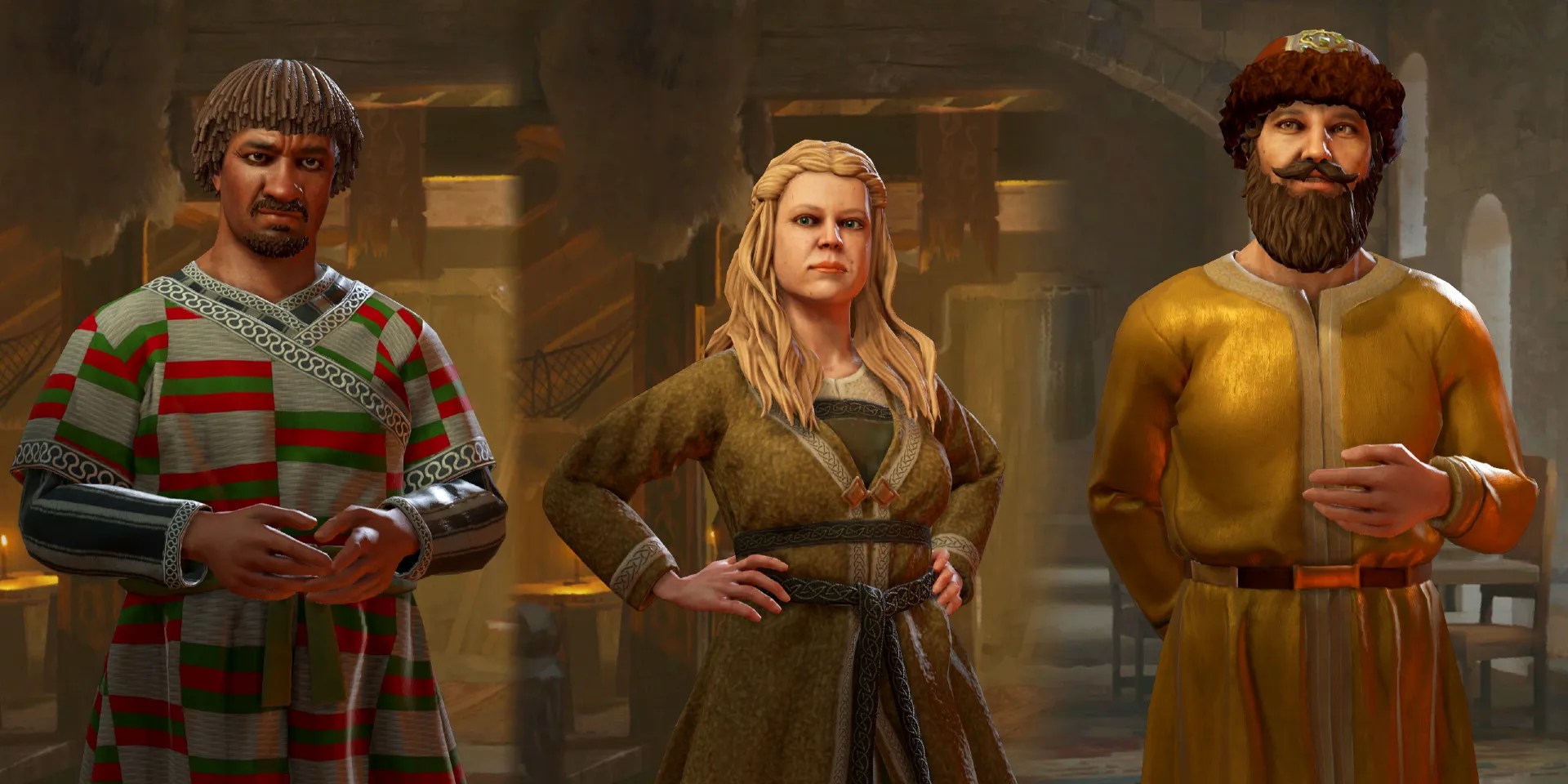There are a tremendous amount of mechanics inCrusader Kings 3that add infinite variables to the game’s complex word. In fact, the character that one plays as in this setting is subject to many different influences that determine and possess many different traits, all of which factor into establishing the player’s proficiency in a great many areas.
RELATED:10 Craziest Things You Can Do In Crusader Kings 3
As such, it would be best to know how these variables are classified and what they do. Though, keep in mind that the player is not the only character. Every single other NPC in the game is another full character with free will and infinite potential.
Nobility & Landing Status
All characters are classified by their country’s social hierarchy depending on their lineage, though, this can change over time. This determines the opportunities for networking, marriages, and how much others of different castes like the player. There are 2 options for nobility and 2 for landing status.
Landing Status
Appearance
The character generation has an incredible amount of variation between individuals, which makes each playthrough aesthetically unique and interesting. The game’s engine uses a complex DNA system (essentially juggling the traits of the parents) to make decisions about a character’s skin, pigmentation, height, facial features, and hair color.
RELATED:Crusader Kings 3 Beginner’s Guide
As a player grows, their appearance will further be affected by their age, weight gain (or loss), and traits that they will be picked up along life’s winding journey, including injuries that can leave visible scars. Furthermore, there are 13 different ethnicitiesrelated to different regions of the world mapthat can be selected for a character (depending on where they are born and who their parents are):
Opinion
One of the most important mechanics in the game is Opinion, as every single NPC in the game has an opinion of the player as well as everyone else, which affects all of their relationships based on many factors.
RELATED:Crusader Kings 3: Pro Tips To Level Up Your Rule
General Opinion
General Opinion can also be inherited, meaning that when a character dies, their heir receives a portion of the positive or negative Opinion of their parent. Positive Opinion passes down 25% of its value while Negative Opinion passes down 50% of its value.
Vassal Opinion
Characters prominent enough to have vassals will sometimes be at the mercy of their underlings, as their vassals will contribute tax income and levies based on how much they like their ruler. Additionally, if vassals detest their liege, they can take hostile actions like starting a revolt or planning an assassination.
Attraction
Attraction plays a factor as well, for all male characters under 65 and all female characters under 50 have a higher Opinion of other characters with traits that are considered physically attractive as well as in their preferred sexual designation.
Relations
Every now and then a character will interact with another one enough times for their connection to potentially evolve into 1 of 3 types: friendship, love, or conflict. These more complex connections can occur during childhood, adulthood, and both (lifelong relations). In conjunction with a change of that character’s Opinion, there will come some other factors that influence a character’s stress as well as fertility. Here are the 3 types of relations broken down with their effects:
Conflict
Tyranny
Characters can gain negative Opinion in the form of Tyranny if they commit actions seen as unjust. The higher one’s Tyranny, the more a ruler’s vassals and courtiers will dislike them, meaning that liege lords and ladies should always try to keep their Tyranny low in most situations.
Actions That Increase Tyranny
Over time, Tyranny will slowly decrease, and this process can be quickened with certain traits, actions, perks, and other mechanics. Players can also acquire aspects that decrease the Tyranny gained through unjust actions.


